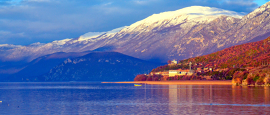Albania Health Care and Vaccinations
| Title | Special precautions |
|---|---|
| Diphtheria |
No |
| Hepatitis A |
Sometimes |
| Malaria |
No |
| Rabies |
Sometimes |
| Tetanus |
Yes |
| Typhoid |
Sometimes |
| Yellow Fever |
No* |
Healthcare in Albania is a mix of public and private services, but facilities and standards may not match those of Western Europe or North America. Public hospitals provide basic care, though they can be under-resourced, especially outside major cities. Private clinics and hospitals in Tirana offer better services; they also have modern facilities and English-speaking staff.
Visitors are advised to have comprehensive travel insurance that covers medical treatment and evacuation, as complex cases may require transfer to another country. Pharmacies are widely available, and many medications can be obtained without a prescription, though it's best to bring essential medications with you.
In Albania, tap water is generally chlorinated and safe for brushing teeth and washing produce. However, due to varying water quality across regions, it's advisable for visitors to drink bottled or boiled water, especially outside major cities like Tirana. This precaution reduces the risk of potential waterborne illnesses, which can occur even in urban areas.
Visitors should avoid unpasteurised dairy products, such as homemade cheeses and raw milk, as they may carry health risks like brucellosis and other bacterial infections. Opting for pasteurised milk, which is commonly used in cafés and restaurants, is a safer choice. To ensure a safe culinary experience, consuming only well-cooked foods and practising good hand hygiene before meals is also recommended.
Do you have any Feedback about this page?
© 2026 Columbus Travel Media Ltd. All rights reserved. No part of this site may be reproduced without our written permission, click here for information on Columbus Content Solutions.








 You know where
You know where